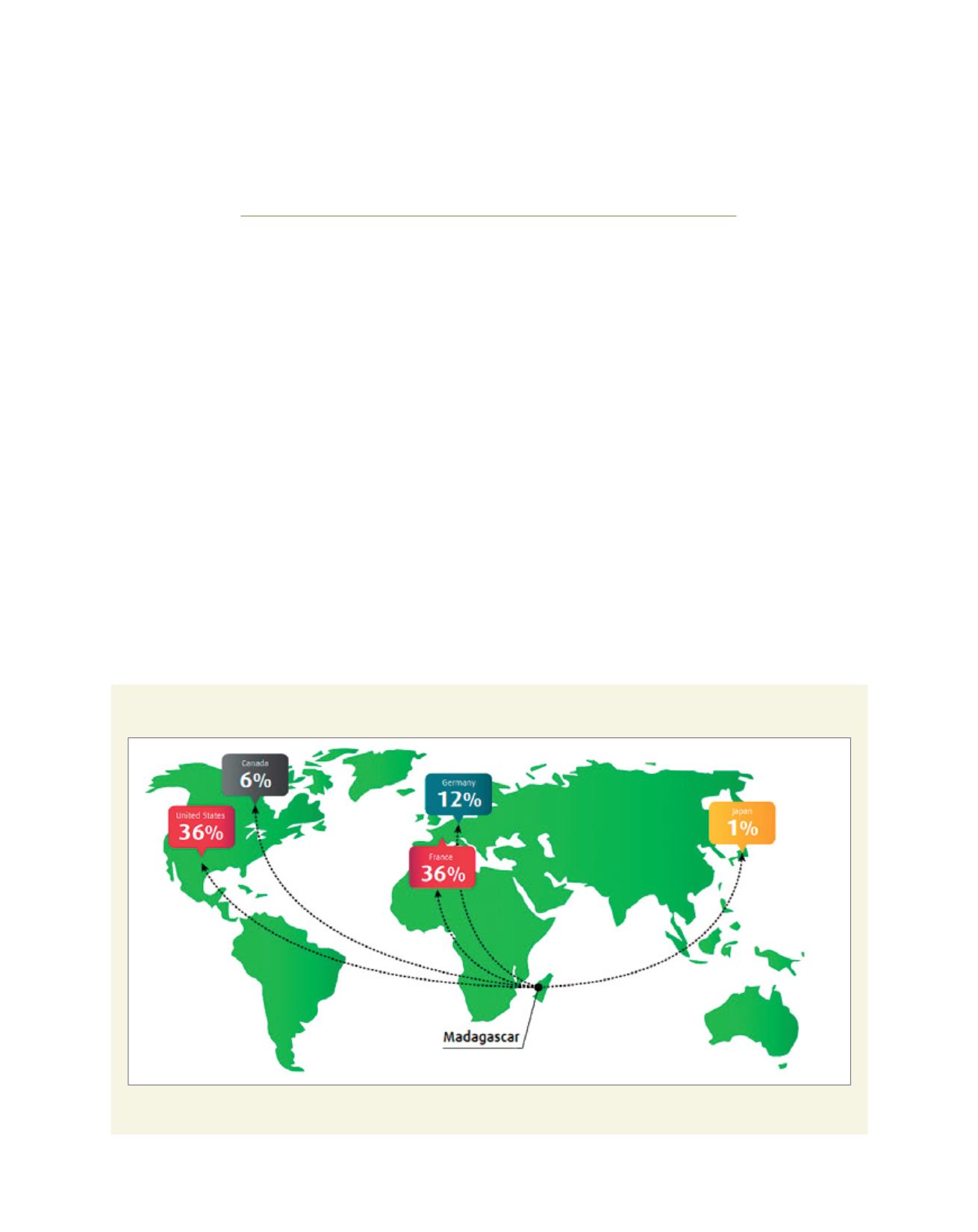

[
] 233
Overcoming the shameful paradox
in Madagascar’s vanilla sector
Anselm Iwundu, Executive Director, Fairfood International
The top five importers of Madagascar vanilla (2011)
Source: Fairfood (2014)
T
here is absolutely no reason why small farmers
producing the world’s most used flavouring and
the second most expensive spice in the world –
vanilla – should live in abject poverty. This is, however,
currently the case in Madagascar. About 80,000 small-
scale farmers produce Madagascar’s vanilla, the majority
of whom live off less than US$1 a day and suffer extreme
income insecurity. Meanwhile, Madagascar is the world’s
top producer of natural vanilla.
This paradox is shameful but can be overcome by concerted
efforts from key players. Multinational brands and flavour
houses sourcing vanilla from Madagascar could ensure that
these small farmers receive a fair income. International civil
society organizations focusing on Madagascar can empower
these farmers to advocate socioeconomic fairness for
themselves. African governments and international donor
agencies can invest in projects that directly empower these
famers and ensure their income security. With the United
Nations declaring 2014 as the International Year of Family
Farming and the African Union calling 2014 the Year of
Agriculture and Food Security in Africa, there is no better
time to overcome this paradox than now.
Madagascar is widely recognized as one of the world’s
biodiversity hotspots, rich in unique wildlife, and with a
beautiful and diverse ecosystem. The country is also a major
producer and the largest exporter of vanilla,
1
the second most
expensive spice and the most popular flavour in the world.
Madagascar accounts for about 50-80 per cent of global
vanilla exports. It exports vanilla to mainly five countries:
the US, France, Germany, Canada and Japan. Over 80 per
cent of vanilla imported in France comes from Madagascar.
Despite this, Madagascar is one of the poorest countries in
the world and consistently ranks low in major food security
indices. Oxfam recently ranked Madagascar as one of worst
places in the world to eat,
2
and a country where people face
D
eep
R
oots
















